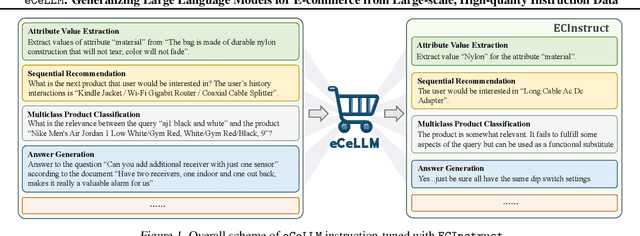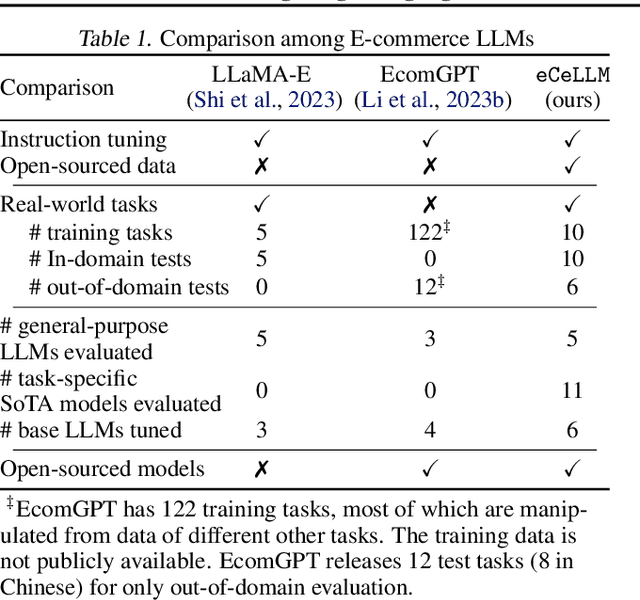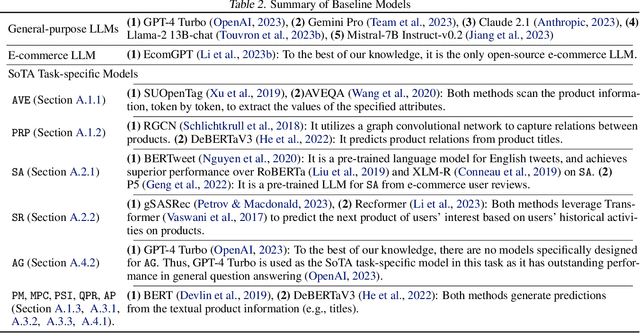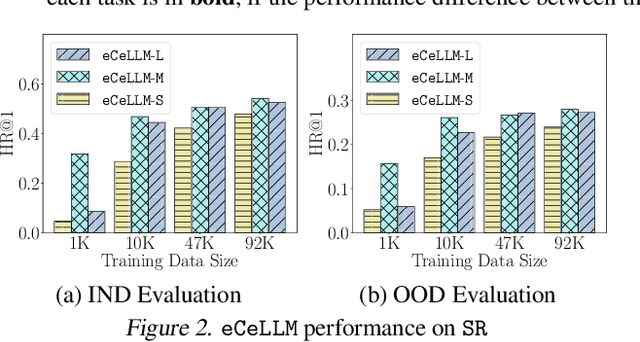Xinyi Ling
Captions Speak Louder than Images (CASLIE): Generalizing Foundation Models for E-commerce from High-quality Multimodal Instruction Data
Oct 22, 2024



Abstract:Leveraging multimodal data to drive breakthroughs in e-commerce applications through Multimodal Foundation Models (MFMs) is gaining increasing attention from the research community. However, there are significant challenges that hinder the optimal use of multimodal e-commerce data by foundation models: (1) the scarcity of large-scale, high-quality multimodal benchmark datasets; and (2) the lack of effective multimodal information integration methods. To address these challenges, in this paper, we introduce MMECInstruct, the first-ever, large-scale, and high-quality multimodal instruction dataset for e-commerce. We also develop CASLIE, a simple, lightweight, yet effective framework for integrating multimodal information for e-commerce. Leveraging MMECInstruct, we fine-tune a series of e-commerce MFMs within CASLIE, denoted as CASLIE models. Our comprehensive evaluation demonstrates that CASLIE models substantially outperform 5 categories of advanced baseline models in the in-domain evaluation. Moreover, CASLIE models show strong generalizability to out-of-domain settings. MMECInstruct and CASLIE models are publicly accessible through https://ninglab.github.io/CASLIE/.
eCeLLM: Generalizing Large Language Models for E-commerce from Large-scale, High-quality Instruction Data
Feb 13, 2024



Abstract:With tremendous efforts on developing effective e-commerce models, conventional e-commerce models show limited success in generalist e-commerce modeling, and suffer from unsatisfactory performance on new users and new products - a typical out-of-domain generalization challenge. Meanwhile, large language models (LLMs) demonstrate outstanding performance in generalist modeling and out-of-domain generalizability in many fields. Toward fully unleashing their power for e-commerce, in this paper, we construct ECInstruct, the first open-sourced, large-scale, and high-quality benchmark instruction dataset for e-commerce. Leveraging ECInstruct, we develop eCeLLM, a series of e-commerce LLMs, by instruction-tuning general-purpose LLMs. Our comprehensive experiments and evaluation demonstrate that eCeLLM models substantially outperform baseline models, including the most advanced GPT-4, and the state-of-the-art task-specific models in in-domain evaluation. Moreover, eCeLLM exhibits excellent generalizability to out-of-domain settings, including unseen products and unseen instructions, highlighting its superiority as a generalist e-commerce model. Both the ECInstruct dataset and the eCeLLM models show great potential in empowering versatile and effective LLMs for e-commerce. ECInstruct and eCeLLM models are publicly accessible through https://ninglab.github.io/eCeLLM.
 Add to Chrome
Add to Chrome Add to Firefox
Add to Firefox Add to Edge
Add to Edge